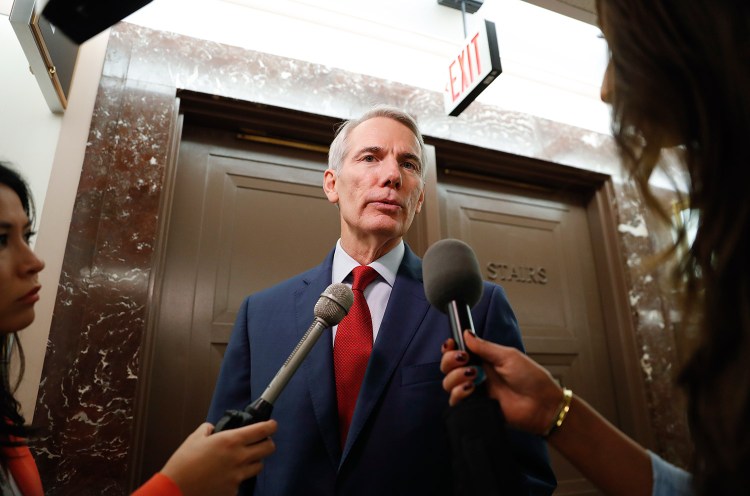In the early 1930s, when Benito Mussolini was one of the world’s most admired political figures, Franklin Roosevelt proclaimed in his first inaugural address that there might have to be a “temporary departure” from “the normal balance of executive and legislative authority” so that he could wield in domestic policy “broad executive power” as great as would be given to him were America “invaded by a foreign foe.” Such was the allure of unfettered executive power, the Studebaker automobile company of South Bend, Indiana, marketed a model called the Dictator.
The Constitution vests in Congress the power “to regulate commerce with foreign nations.” But Congress has long granted vast trade discretion to presidents, for reasons of sloth (setting policy is work), prudence (taking responsibility is risky) and ideology (the separation of powers is an anachronistic impediment to energetic government).
Today, however, there is growing legislative resistance to some broad powers that presidents have because legislators improvidently – and, arguably, unconstitutionally – delegated them to presidents, particularly regarding international trade. Those powers include the presidential imposition of taxes, which tariffs are, paid by Americans.
Sens. Rob Portman, R-Ohio, Doug Jones, D-Ala., and Joni Ernst, R-Iowa, have introduced legislation that would, they say, “better align” Section 232 of the Trade Expansion Act of 1962 with its “original intent,” which was to enable presidential responses “to genuine threats to national security.”
The senators would require the Defense Department to justify the “national security” basis for tariffs. Imagine the generals and admirals today trying to explain the threat posed by imported automobiles and auto parts, or by steel and aluminum imported from nations (six of the top 10 sources of imported steel) that have mutual-defense agreements with America.
In 1903, Winston Churchill, then 28, warned that by embracing protectionism, the Conservative Party would “cause the lobbies to be crowded with the touts of protected industries.” The Trump administration’s protectionism has turned the Commerce Department into a bazaar for such touts.
Sen. Pat Toomey, R-Pa., points to other fundamental constitutional issues. President Trump might try to force ratification of his United States-Mexico-Canada replacement of the North American Free Trade Agreement by terminating NAFTA. Congress would have to either embrace the USMCA, or live without an agreement and with economic chaos.
Toomey correctly argues that Congress cannot delegate the power to repeal statutes. Statutes implementing congressional-executive trade agreements explicitly authorize presidents to take certain actions, which make implausible implicit delegation of the power to terminate such agreements.
The president might argue that he can unilaterally terminate treaties (although no president did so until 1927), and that congressional-executive agreements decisively resemble treaties because presidential initiative is paramount.
But the president’s power in foreign relations is plenary except regarding commerce, where the president has no independent power and where the Constitution establishes Congress’ primacy. Presidents can make trade treaties, which must be consented to by two-thirds of the Senate. But congressional-executive pacts like NAFTA are authorized by statutes passed by both houses of Congress, and must be terminated by statutes.
During the Korean War, the Supreme Court rejected President Truman’s claim that his inherent and implied powers as commander in chief legitimated his seizure of steel mills to prevent disruption by labor disputes. Concurring, Justice Robert Jackson said that presidential powers “fluctuate depending on their disjunction or conjunction with those of Congress,” and presidential power is at its “lowest ebb” when the president acts against the “expressed or implied will of Congress.” That will is expressed, not merely implied, in congressional-executive agreements like NAFTA.
Although the Studebaker company expired in 1966, a Dictator model is displayed in South Bend’s Studebaker Museum. Although today’s swollen presidency will not soon be a museum piece, it is encouraging that a few legislators want to claw back some of their branch’s powers, thereby reducing the executive to a dimension more compatible with our constitutional architecture.
Send questions/comments to the editors.



Comments are no longer available on this story